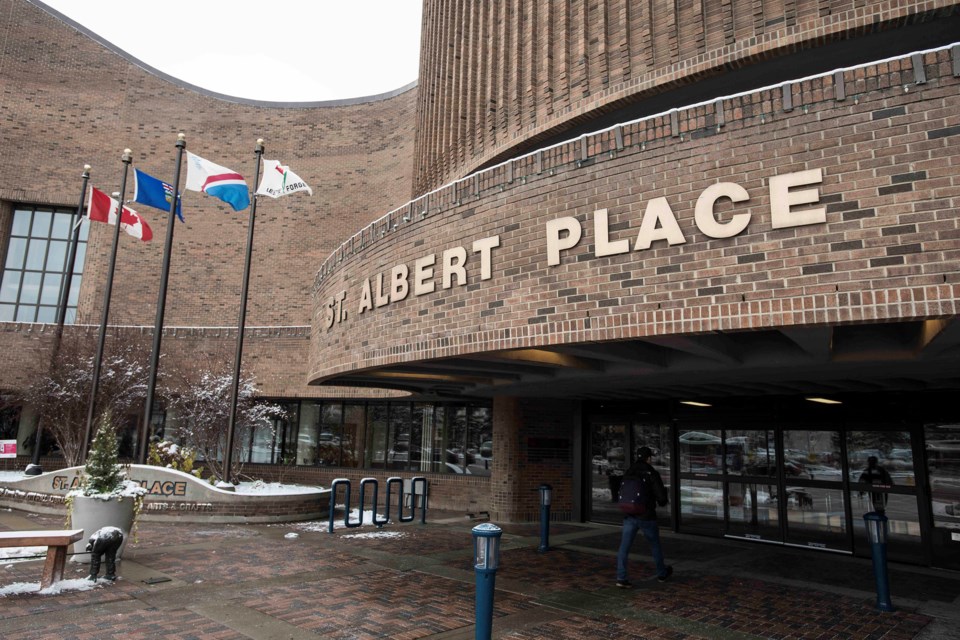Local expert Frank Vagi believes St. Albert's plan to start up a city-owned utility corporation is destined to fail.
Vagi, a St. Albert resident, chemical engineer and professor at the University of Alberta who spent his career specializing in utility systems and energy efficiency, said he believes the project proposal the city has put forward will not succeed.
"It's gonna fail. It's going to be a money pit," Vagi said.
City council has a decision before it Monday on whether to move forward with the municipal utility corporation (MUC). Vagi reviewed a preliminary business plan for the MUC drawn up by consultant Grant Thornton, but said the numbers in the plan do not make sense.
He pointed to waste-to-energy, which council has approved a pilot project for, arguing the capital cost cited in the business plan is drastically lower than he would expect a project like that to cost. Vagi said scaling up from a pilot is not a flawless process, either, and unforeseen problems can arise.
"The costs will be ridiculous. The costs will override the revenue substantially and this will be a white elephant for St. Albert. It will crater us like it did Chestermere," Vagi said of the MUC. Chestermere's MUC failed and was recently reabsorbed into that city but left millions of dollars to be borne by residents, as well as higher utility bills.
In order for St. Albert's MUC to be successful, Vagi said it would need to be carried out on a much larger scale. He believes the only way St. Albert would turn a profit is by having the entire 1.3 million people in the Edmonton metropolitan area to draw upon.
"If it were done as a regional initiative, it would be worthwhile," Vagi said.
Vagi said he understands the drive to do a project like this, as it becomes increasingly less sustainable to bury our garbage in landfills and monitor the methane gas being produced by it. But he said the city needs to understand the engineering realities of a waste-to-energy plant and what it would need to be successful. The operational costs cited in the business plan fall short of what Vagi believes such a facility would need – taking staffing as an example, Vagi said it would take at least $2 million per year to ensure the plant is staffed by qualified power engineers around the clock.
Former city staffers ponder risks
Glenn Tompolski, the city's former general manager for infrastructure and utilities who retired in 2017, said he also sees some potential flaws in the MUC plan.
Tompolski said he believes councillors are doing what they think is best for the city, but noted there are some risks associated with this venture.
For a project like this to be financially valuable to the city – especially regarding waste-to-energy – Tompolski said the city needs a bigger market.
"If there's opportunities externally to get you to obtain revenues, then that becomes a different discussion, because then you have that opportunity to generate more revenue that's external to the corporation to help keep taxes down," he said.
Tompolski noted he doesn't see any one right answer, since it's hard to compare different municipalities. Every situation is different, he said.
For solid waste, Tompolski said St. Albert has one of the most cost-effective systems already in place. He noted the city doesn't generate much commercial waste and would need more of the regional market. For waste-to-energy, the costs associated with such a project could make it hard to compete with private businesses that use the traditional landfill system.
Tompolski said his advice would be to proceed with the city's pilot waste-to-energy project first before deciding to launch an MUC.
Former city manager Bill Holtby told the Gazette earlier this month he couldn't find an example of a successful MUC in Alberta that doesn't produce water, treat wastewater or create electricity or natural gas. He suggested council seek a second opinion, through a committee or an expert panel, if they decide to proceed.
Holtby also wrote to city council prior to a Dec. 2 public hearing on the MUC. He commended the city for looking at ways to diversify its revenue streams, but concluded he does not see how starting a utility corporation would be worth the financial risk.




